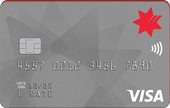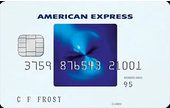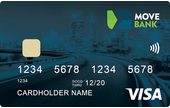Mobile wallets have taken over: Is the ease of digital payments costing you?

Being equipped with a fully functioning wallet in your phone is a lifesaver in the fast-pace of modern society, but new research confirms that the ease of digital payments could actually be doing significant damage to your spending habits.
The Consumer Owned Banking Association (COBA) are urging people to be aware of the danger that these easy payment methods can have, especially those who are financially at-risk.
What are the dangers of digital payments?
We aren’t talking about scams or credit card fraud (though we’d definitely stay alert!) - this is a different kind of danger, the kind where spending is simply too easy.
The growing popularity of mobile payments and the increasing in-store acceptance of Buy Now Pay Later apps makes it effortless to access any kind of payment at the touch of a button (and sometimes not even that). This is often a great thing, as buying your morning coffee can be as simple as tapping your watch against the terminal, and forgetting your wallet at home is no longer the end of the world.
However, there are some downsides when it comes to that ease of payment. COBA’s most recent study has found that while 77% of shoppers opt for cashless payments, people that do so are far more likely to be experiencing financial struggles.
More people amidst financial difficulty were likely to tap and pay as opposed to those in secure financial situations (44% to 35%), finding it harder to keep track of spending. The study also found that people in financial trouble were resorting to using BNPL services (with 29% of surveyed users reporting financial stress).
Buy now, pay later resources were also more frequently used by younger spenders, which can now impact their credit scores for years to come.
How can I stay safe from digital payment temptation?
There’s nothing inherently wrong with BNPL or tap and go digital payments if you’re using them sensibly and sticking to a budget. The ability to separate a digital payment from the idea of real, tangible money makes that a little harder.
Thankfully, while digital payments can create a problem by disconnecting you from the reality of the cash you’re spending, they can also be a part of their own solution.
One way to cut back on everyday spending is to explore the features offered by your bank or credit card provider to see if there are options to impose limits on spending. Some banking apps, like Commonwealth Bank’s, will allow you to set a daily spending limit (excluding scheduled payments and BPAY bills) to prevent spending outside of a budget.
A lower credit limit is also likely to steer you away from deep debt traps. By not allowing you to over-extend your borrowing, a lower credit limit is more likely to keep you on top of repayments. These cards are also likely to have lower fees and lower rates, so it’s a bonus all round.
You could also switch over to the good old debit card. While these might seem a little no-frills in their features, having a card tied directly to the money in your account makes things feel directly consequential. No more dealing with the consequences later - that money is leaving your account directly! You’ll also get all the ease of a credit card, though make sure you read up on your specific card to figure out the details, most are enabled for mobile wallets, tap payments, and online spending.
If it’s still not cutting it, you might want to go old school. Society might feel mostly cashless, but spending in cash could help you feel the immediate effect of your money leaving your wallet. Just make sure not to overdo it on the cash advances if it’s coming out of your credit card, or you could get served some hefty charges.
If you are experiencing any financial hardship, from minor stress to major difficulties, take a look at some of the ways forward. For some digital payments that stand out, read up on Mozo’s best credit cards.
Start comparing low rate credit cards - last updated 5 May 2024
-

NAB Low Rate Card - Balance Transfer Offer
Spend with confidence with a low 13.49% p.a. variable purchase rate and 0% p.a. interest on balance transfers for the first 28 months (T&Cs apply). 2% balance transfer fee applies. There’s also up to 55 interest free days on purchases to help you manage your budget better when you make minimum repayments. Minimum credit limit $1,000. No annual fee for the first year (usually $59).
Purchase rate
13.49% p.a.Balance transfer rate
0% p.a. for 28 months and then 21.74% p.a. (2.00% balance transfer fee)Annual fee
$59 $0 in the first yearCompareCompareLow Rate Card - Balance Transfer Offer
Spend with confidence with a low 13.49% p.a. variable purchase rate and 0% p.a. interest on balance transfers for the first 28 months (T&Cs apply). 2% balance transfer fee applies. There’s also up to 55 interest free days on purchases to help you manage your budget better when you make minimum repayments. Minimum credit limit $1,000. No annual fee for the first year (usually $59).
- Purchase rate
- 13.49% p.a.
- Balance transfer rate
- 0% p.a. for 28 months and then 21.74% p.a. (2.00% balance transfer fee)
- Annual fee
- $59 $0 in the first year
- Purchase rate
- 13.49% p.a.
- Intro purchase rate
- -
- Balance transfer rate
- 0% p.a. for 28 months and then 21.74% p.a. (2.00% balance transfer fee)
- Cash advance
- 21.74% p.a.
- Interest free days on purchases
- 55
- Intro fee
- 0.0
- Foreign exchange margin
- 3.00%
- Annual card fee
- $59 $0 in the first year
- Late payment fee
- $15.00
- Cash advance fee
- 3%, Min $3
Read our Mozo Review to learn more about the NAB Low Rate Card - Balance Transfer Offer
-

American Express Low Rate Credit Card
Competitive low rate with $0 Annual Fee. Offers Card Refund Cover and Card Purchase Cover. Must have no history of bed debt or payment default, be aged 18 years and over, and be an Australian citizen, permanent resident, or hold a long term visa.
Purchase rate
10.99% p.a.Balance transfer rate
No current offerAnnual fee
$0CompareCompareLow Rate Credit Card
Competitive low rate with $0 Annual Fee. Offers Card Refund Cover and Card Purchase Cover. Must have no history of bed debt or payment default, be aged 18 years and over, and be an Australian citizen, permanent resident, or hold a long term visa.
- Purchase rate
- 10.99% p.a.
- Balance transfer rate
- No current offer
- Annual fee
- $0
- Purchase rate
- 10.99% p.a.
- Intro purchase rate
- -
- Balance transfer rate
- No current offer
- Cash advance
- -
- Interest free days on purchases
- 55
- Intro fee
- -
- Foreign exchange margin
- 3.00%
- Annual card fee
- $0
- Late payment fee
- $30.00
- Cash advance fee
- 2%, min $2.50
Read our Mozo Review to learn more about the American Express Low Rate Credit Card
-

HSBC Low Rate Credit Card
Purchase rate
12.99% p.a.Balance transfer rate
0% p.a. for 12 months and then 25.99% p.a. (2.00% balance transfer fee)Annual fee
$99CompareCompareLow Rate Credit Card
- Purchase rate
- 12.99% p.a.
- Balance transfer rate
- 0% p.a. for 12 months and then 25.99% p.a. (2.00% balance transfer fee)
- Annual fee
- $99
- Purchase rate
- 12.99% p.a.
- Intro purchase rate
- -
- Balance transfer rate
- 0% p.a. for 12 months and then 25.99% p.a. (2.00% balance transfer fee)
- Cash advance
- 25.99% p.a.
- Interest free days on purchases
- 55
- Intro fee
- -
- Foreign exchange margin
- 0%
- Annual card fee
- $99
- Late payment fee
- $30.00
- Cash advance fee
- 3%, min $4.00
Read our Mozo Review to learn more about the HSBC Low Rate Credit Card
-

Australian Unity Low Rate Visa Credit Card
Purchase rate
9.90% p.a.Balance transfer rate
No current offerAnnual fee
$59CompareCompareLow Rate Visa Credit Card
- Purchase rate
- 9.90% p.a.
- Balance transfer rate
- No current offer
- Annual fee
- $59
- Purchase rate
- 9.90% p.a.
- Intro purchase rate
- -
- Balance transfer rate
- No current offer
- Cash advance
- 18.99% p.a.
- Interest free days on purchases
- 45
- Intro fee
- -
- Foreign exchange margin
- 3.00%
- Annual card fee
- $59
- Late payment fee
- $10.00
- Cash advance fee
- $5.00
Read our Mozo Review to learn more about the Australian Unity Low Rate Visa Credit Card
-

MOVE Bank Low Rate Credit Card
Purchase rate
8.99% p.a.Balance transfer rate
0% p.a. for 6 months and then 8.99% p.a.Annual fee
$59 $0 in the first yearCompareCompareLow Rate Credit Card
- Purchase rate
- 8.99% p.a.
- Balance transfer rate
- 0% p.a. for 6 months and then 8.99% p.a.
- Annual fee
- $59 $0 in the first year
- Purchase rate
- 8.99% p.a.
- Intro purchase rate
- -
- Balance transfer rate
- 0% p.a. for 6 months and then 8.99% p.a.
- Cash advance
- 12.99% p.a.
- Interest free days on purchases
- 45
- Intro fee
- 0.0
- Foreign exchange margin
- 2.00%
- Annual card fee
- $59 $0 in the first year
- Late payment fee
- $15.00
- Cash advance fee
- $5.00
Read our Mozo Review to learn more about the MOVE Bank Low Rate Credit Card
Your selected credit cards
Your selected credit cards
Your selected credit cards
Your selected credit cards
Your selected credit cards
^See information about the Mozo Experts Choice Credit Card Awards
Mozo provides general product information. We don't consider your personal objectives, financial situation or needs and we aren't recommending any specific product to you. You should make your own decision after reading the PDS or offer documentation, or seeking independent advice.
While we pride ourselves on covering a wide range of products, we don't cover every product in the market. If you decide to apply for a product through our website, you will be dealing directly with the provider of that product and not with Mozo.





